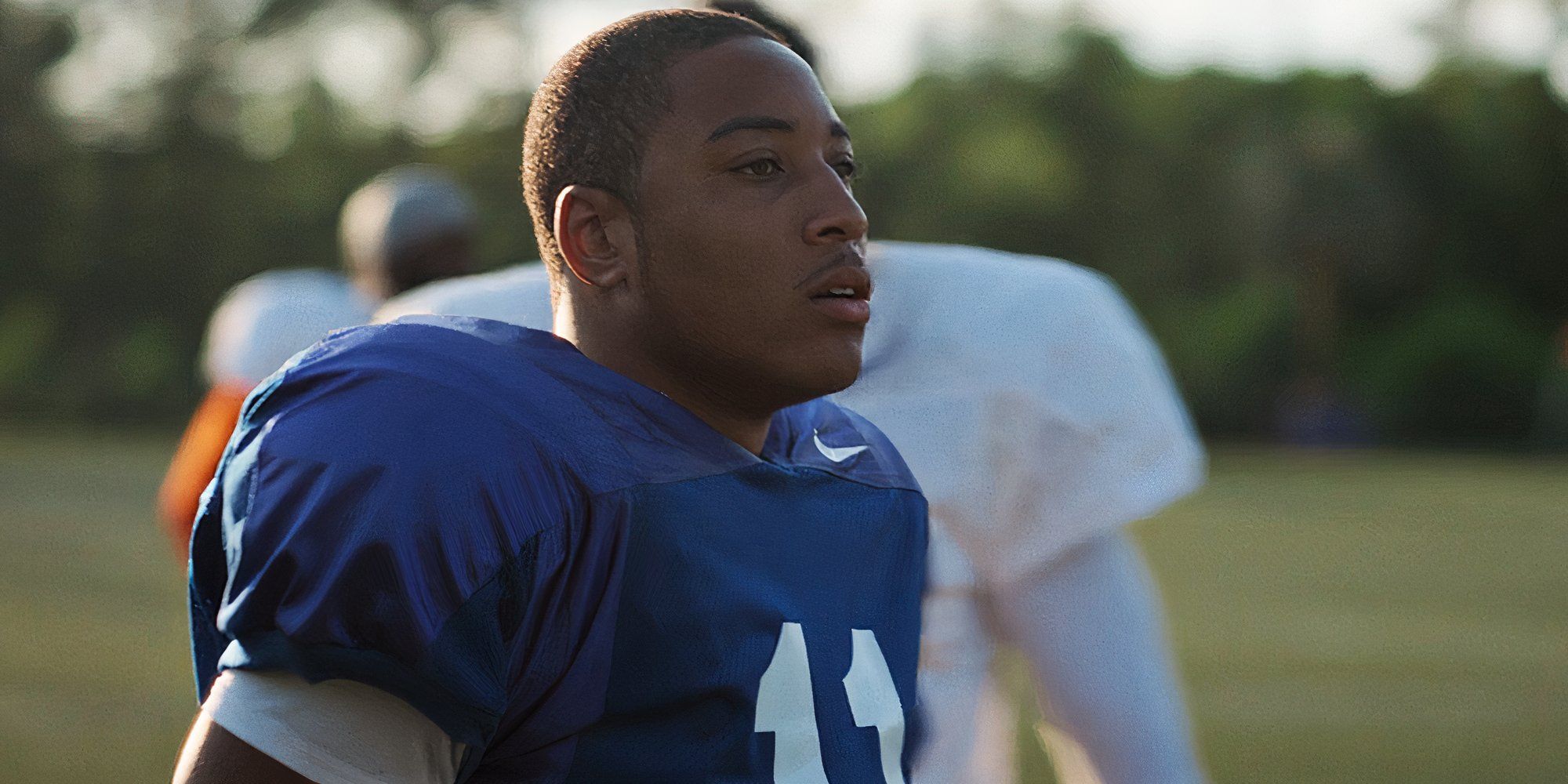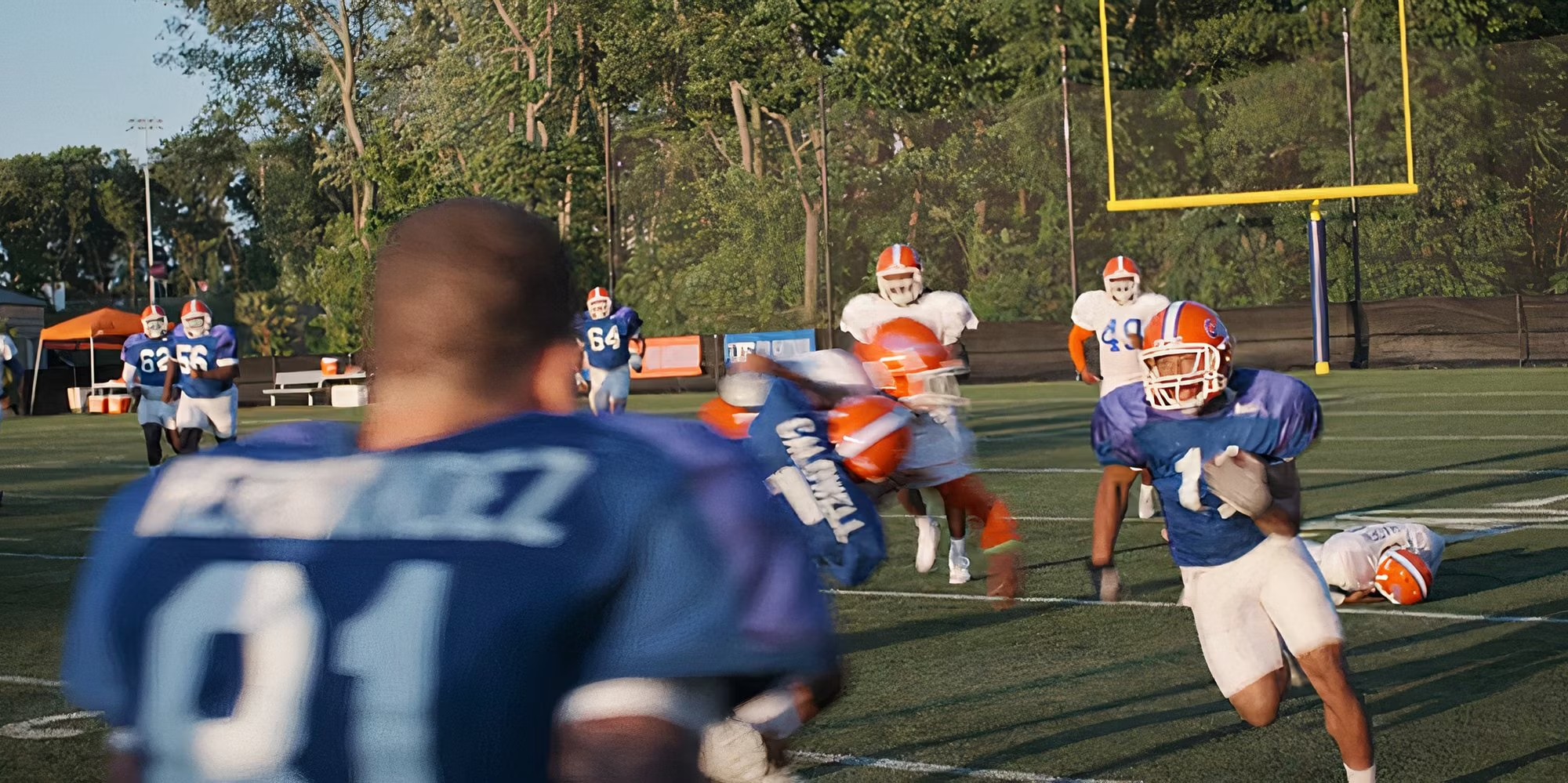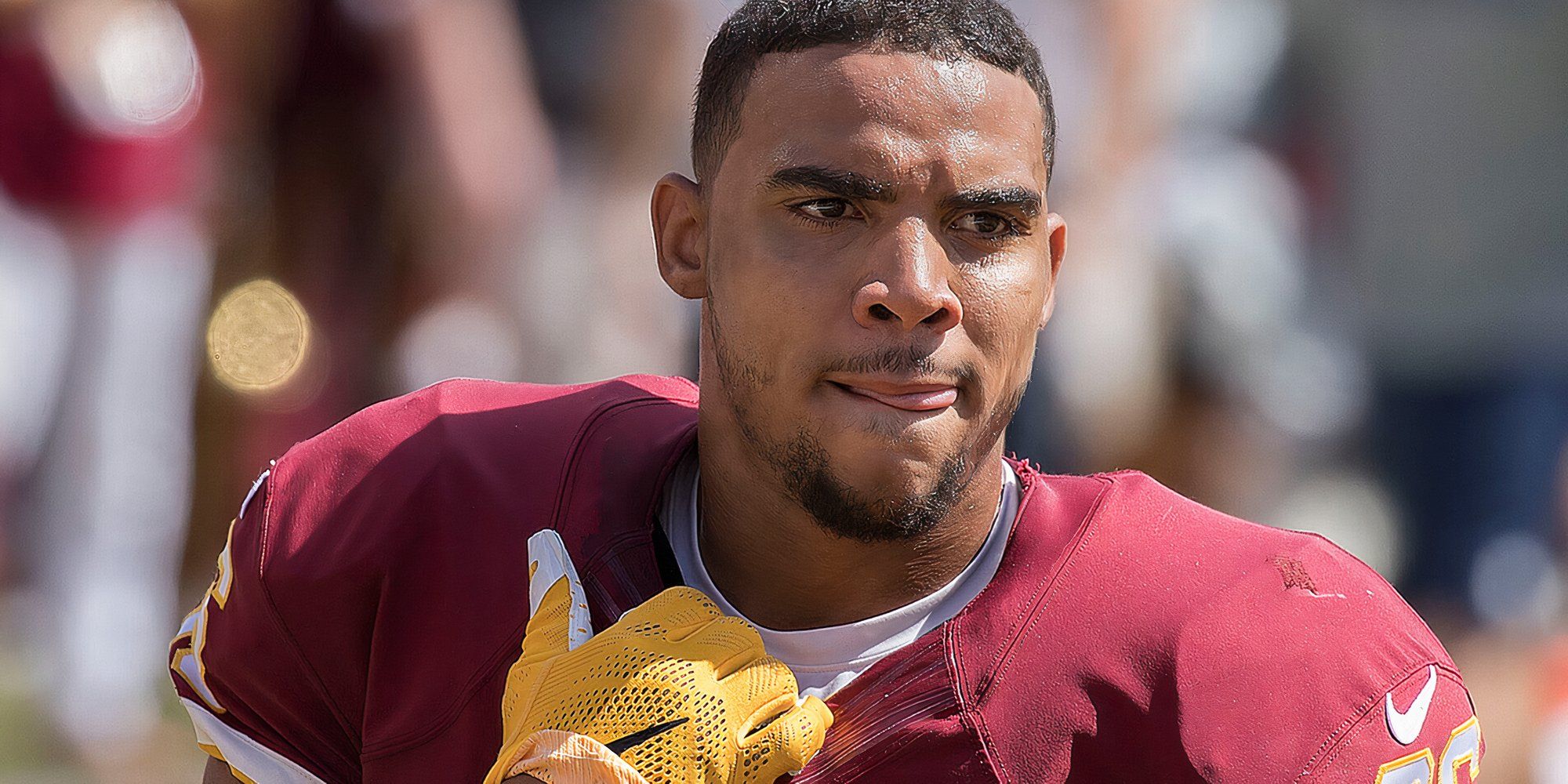Who Is Reed? Florida’s Tight End After Aaron Hernandez & What Happened To Him

WARNING: SPOILERS ahead for American Sports Story.
The new FX series American Sports Story depicts a scuffle between future NFL tight ends and former college teammates Aaron Hernandez and Jordan Reed. As one of the biggest true story changes in American Sports Story episode 3, Hernandez and Reed did not actually get into a fight during a 2009 practice at the University of Florida. As a way for the series to portray Hernandez’s inability to control his violent impulsivity and demonstrate his invincible mentality, Hernandez tackles Reed as he carries the ball during practice. In the context of the dramatized scene, Hernandez wasn’t supposed to be on the field after getting benched for showing up high on cannabis.
Josh Rivera leads the American Sports Story cast as Aaron Hernandez, the former collegiate and NFL superstar tight end who was convicted of murdering semi-pro football player Odin Lloyd in 2015. The first two episodes of American Sports Story capture a basic understanding of Aaron Hernandez’s complicated upbringing and accelerated path to becoming a Florida Gator before joining the NFL in 2010. American Sports Story portrays several NFL players and coaches including Hernandez, Tim Tebow, and Tom Brady. The series looks into Hernandez’s relationship with Florida head coach Urban Meyer and chronicles Hernandez’s head injuries that led to his stage 3 CTE diagnosis in 2017.
American Sports Story
is now streaming on Hulu.
Jordan Reed Was Florida’s Starting Tight End After Aaron Hernandez
Reed was a tight end for the Florida Gators between 2009 and 2012
Although Jordan Reed is only briefly depicted in American Sports Story episode 3, he would have a big impact on the Florida Gators football team after Aaron Hernandez left college and declared for the 2010 NFL Draft. Reed was a tight end for the Florida Gators between 2009 and 2012 after initially being recruited as a quarterback. He was often compared to Hernandez for having a similar stature and playing style on the football field, starting back in college. “Hernandez is 6’1″ and 245 pounds. Reed is just an inch taller and 236 pounds, a nearly negligible difference. Hernandez ran the 40-yard dash in 4.58 seconds at his pro day, a bit faster than Reed’s official time of 4.72 seconds at the combine” (via Bleacher Report).
Hernandez was the Florida Gators’ starting tight end from 2007 to 2009. Despite all of the tragedy and violence that plagued Hernandez’s life as depicted in American Sports Story, he is still widely considered the greatest tight end in the University of Florida’s history and one of the best tight ends to ever step on a college football field. Hernandez was named First-team All-American in 2009 following his last season with the Florida Gators. He was selected by the New England Patriots in the 2010 NFL Draft. Reed is still undoubtedly one of the best tight ends to play for the University of Florida, but Hernandez was truly in a league of his own.
Reed was named First-team All-SEC in 2012
Jordan Reed had an impressive run at the University of Florida, basically taking over the starting tight end position from Aaron Hernandez. Initially recruited as a potential replacement for Tim Tebow at the quarterback position, which ultimately went to John Brantley in 2011 and Jacoby Brissett in 2012, Reed made First-team All-SEC after being redshirted as a freshman in 2009. Reed completed his collegiate career with a total of 78 receptions for 938 yards and six touchdowns compared to Hernandez’s 111 receptions for 1,382 yards and 12 touchdowns.
Reed did not have the same level of success as Hernandez did at the tight end position while playing for the University of Florida under head coach Urban Meyer. Hernandez played on the National Championship-winning 2008 team which many consider to be one of the most talented college football teams ever assembled. Hernandez is one of 23 college tight ends since 2000 to win the prestigious John Mackey Award, which is given annually to the nation’s most talented and productive tight end. Reed also did not win a BCS National Title but was still good enough to make it to the NFL and play for seven of his eight seasons (missed 2019 due to injury).
Jordan Reed’s NFL Career After Florida Explained
Reed was a standout NFL tight end but didn’t win a Super Bowl
Reed was drafted by the Washington Redskins in the third round of the 2013 NFL draft as the 85th overall pick. Reed spent seven seasons with the Redskins, who rebranded as the Commanders in 2020, before signing with the 49ers in 2020. He was elected to the Pro Bowl in 2016 and made the All-Rookie team in 2013. Although he never won any Super Bowls or elite NFL awards, he was an integral part of the Washington Commanders offense throughout the majority of the 2010s. Reed was notably selected higher in the NFL draft than Hernandez, whose draft stock was damaged by his off-the-field reputation.
Reed’s best NFL season was in 2015 when he recorded many career-best stats such as 87 receptions on 114 targets for 952 yards and 11 touchdowns. Reed was a major part of Washington’s postseason appearance in a 2015 Wild Card game against Aaron Rodgers and the Green Bay Packers. Although Washington lost the game, Reed caught 9 receptions for 120 yards and a touchdown in the only NFL playoff game of his professional career. He averaged an impressive 13.3 yards per reception in that game. Reed sat out the 2019 NFL season due to a concussion he received during a preseason game. It was the seventh concussion of his career.
Reed retired in 2021 after eight NFL seasons
Jordan Reed suffered a slew of concussions that impacted his career and resulted in his retirement in 2021. Following his seventh-career concussion in 2019, Washington placed him on the Injury Reserve list and released him at the end of the 2019-2020 season. He signed a one-year contract with the San Francisco 49ers in August 2020 and played a total of 10 games in what would become his final NFL season. He was a standout in Week 2 of the 2020 season against the New York Jets, catching seven passes for 50 yards and two touchdowns. He finished the season with 26 receptions for 231 yards and four touchdowns.
After announcing his retirement, Reed told ESPN, “I was pretty sure I was going to keep playing; I was feeling good about where I was at. But then I had some lingering effects and sought out professional help to get diagnosed. They told me it was not a good idea to keep playing. I agreed with them.” He ultimately chose to put his family and personal life first in lieu of his health concerns with CTE. “Before when I had a concussion I would feel better afterwards and I wouldn’t have lingering effects. If I didn’t have any symptoms I would have kept playing. I’m OK with it because I know the reason why I’m making the choice is for family and my children, so I can be there for them.” Reed and Hernandez share a key scene in American Sports Story.
Source: Bleacher Report, ESPN, Sports Reference
Related
Here’s how Cadillac can become a true American F1 dream…
Credit: Instagram Cadillac (@cadillac) Cadillac F1 stands to have a huge chance to be an American team by and for Americans, something that Formula 1 so badly
Stephen A. Smith Contract Extension – Work Less, Earn More,…
Stephen A. Smith has just landed the contract of his life with ESPN!
American Athletic Conference becomes first league to set ‘minimum standard’…
The American Athletic Conference approved an initiative on Friday to establish a minimum standard of benefits that schools are required to share with athletes i
American Sports Entertainment Company Announces Strategic Partnership with Seidler Equity…
CHANDLER, Ariz., March 7, 2025 /PRNewswire/ -- American Sports Entertainment Company ("ASEC"),














